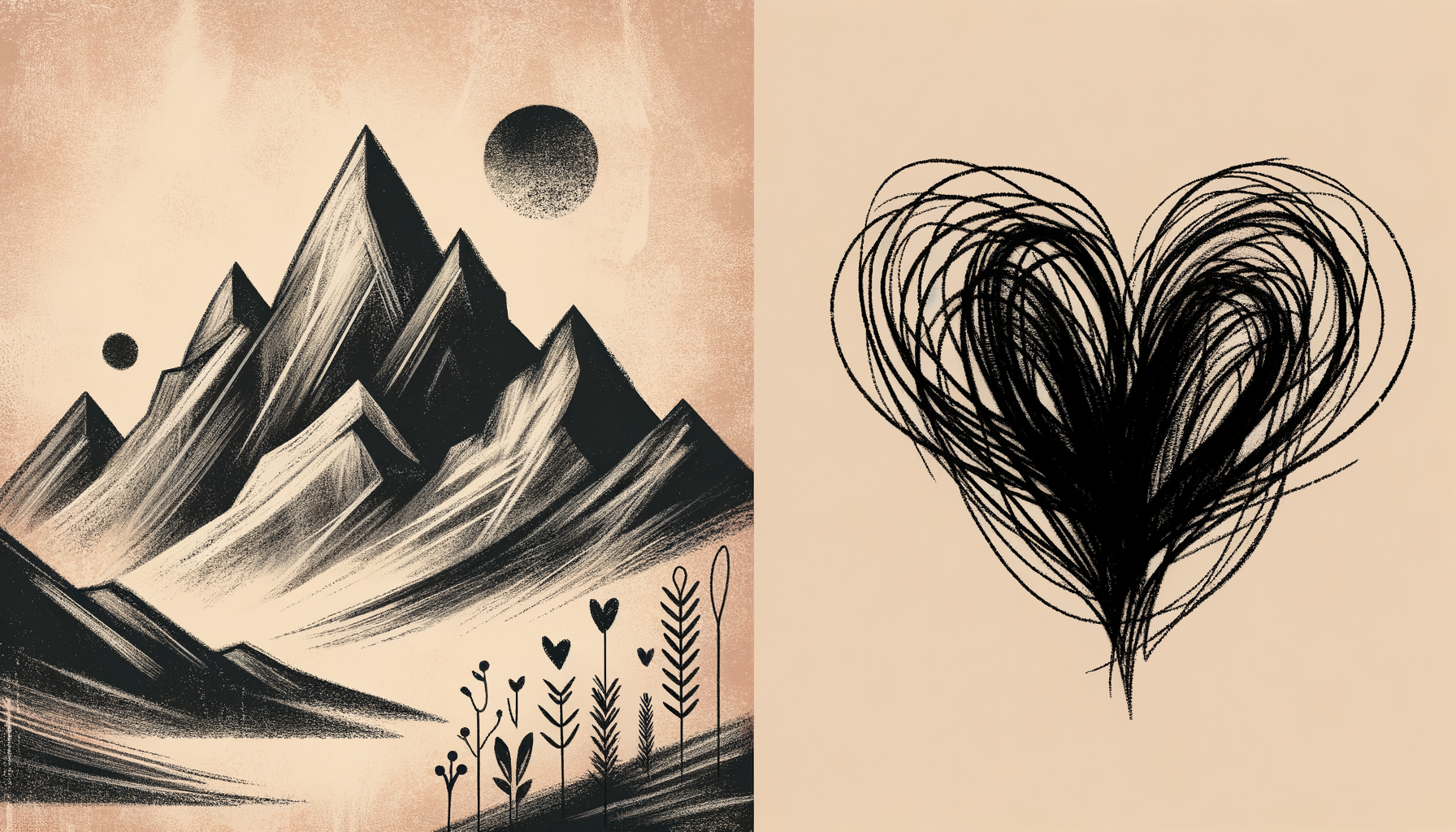I have a confession: my relationship with my hometown is about as complicated as a Ross-and-Rachel storyline. There’s love, there’s angst, there’s the occasional, “Why am I still here?” spirals. Growing up in Telluride, Colorado—a town so beautiful it looks like it was painted with Bob Ross’s softest brush—sounds like a dream, right? And it is, until you realize that every “I grew up on a ranch in Colorado” fun fact unleashes a flood of assumptions about me, most of which involve cowboy hats and lassoing things (neither of which I do well, for the record).
The truth is, Telluride shaped me, broke me, and glued me back together—kind of the way relationships can. It’s the ex you’d half-consider getting back together with, only you’re already married to the place. Your barista knows your coffee order, your neighbor saw you wipe out trying to snowboard “that easy run,” and your high school math teacher still remembers that time you fell asleep in class.
So, yeah, me and Telluride: it’s complicated. Let’s unpack.
The Honeymoon Phase: Mountain Highs and No Wi-Fi
Growing up in Telluride was as picturesque as it gets—literally. Tourists would stop in front of my family’s ranch to snap photos of the snow-capped San Juan Mountains, usually while I was out back shoveling manure. It was the kind of place where summer smelled like fresh hay and sagebrush, while winter smelled like… well, a mix of pine and whatever wet wool your boots reeked of after spending all day outside.
There was a simplicity to it all that I loved, even as a kid. No malls, no traffic, and certainly no swiping right or left on anything (unless you count swiping a biscuit off the dinner table before grace). People say places like Telluride force you to slow down, but really, they force you to notice. That sky? Endless. That black bear crossing the trail? Also endless—run. And while other kids spent summers skateboarding in suburban cul-de-sacs, I spent them guiding tourists on horseback, telling them stories about the same mining towns my grandfather told me about. Small towns, like relationships at their best, have a way of anchoring you.
But then, there’s the itch. The “what else is out there?” voice that sneaks up like the soundtrack of any John Mayer song. And, oh buddy, when that itch hits, it’s hard to stay in love.
The Seven-Year Itch: The One-Horse-Town Blues
Small towns come with small-town truths, and Telluride is no different. My graduating class consisted of literally 25 people. Twenty-five! You don’t date in a graduating class that size unless you’re prepared to have the entire town rank your relationship like it’s Rotten Tomatoes.
Which is fine in high school, I guess. But by the time I hit my mid-20s, I couldn’t shake the feeling that Telluride wasn’t big enough to hold me. Sure, it held all my best memories: stargazing by the campfire, learning to play Willie Nelson on guitar, and that time I asked out a waitress at a ski lodge who straight up said, “I thought you were a tourist.” (Spoiler alert: she laughed when I said no, and we dated for a year.)
But it also held every small-town cliché you can think of. Gossip? You better believe it. People asking you when you’re going to ‘settle down’ while you’re just trying to buy a loaf of bread? Happens. Wanting to shake it up but feeling guilty because your mom is still running lunch buffets for tourists and somehow her lasagna made you a legend? Yep.
Small towns—and hometowns in particular—can feel like that first love you were convinced you’d marry when you were 16, only to wonder if romance shouldn’t involve a little more mystery. Staying feels safe. Leaving feels selfish. That kind of push-and-pull gets exhausting fast. But sometimes, leaving is exactly what you have to do.
Hometown Breakups: How to Leave Without Ghosting
I left Telluride after finishing college at CSU. Officially, it was to attend grad school in Virginia. Unofficially, it was because I needed a clean break—not just from Telluride, but from the part of me that started confusing staying with stagnation. It wasn’t even about making it in the big city or climbing career ladders. I just wanted to be a guy living in a town where I didn’t know everyone’s life story—including who forgot to return their library books in 2003.
But leaving wasn’t the Hallmark-movie montage I imagined. It’s not just packing up your belongings and whistling along to an acoustic folk song. It’s learning to live untethered. It’s realizing that not everyone out East knows what elk taste like. And it’s accepting that no one besides your family cares you can recite the history of mining laws from memory.
Leaving is scary, especially if you’re from a tight-knit place like Telluride. But it teaches you about independence, about silencing the guilt of “abandoning” your roots, and about carving your own definition of home. My advice?
- Start small: Take trips alone. Create little havens in new cities—coffee shops, parks, bookstores—until they start to feel like yours.
- Acknowledge the guilt: It’s normal to feel bad for leaving. But your hometown isn’t a needy ex—it’ll be fine without you.
- Stay connected: Call home when it feels right. Visit when it feels right. But don’t let anyone guilt-trip you into thinking your worth lies in proximity to where you grew up.
Coming Home: Full Circles & New Perspectives
Here’s the plot twist: I came back. Not to live on the ranch full-time or to shovel manure again (thankfully), but for something I never expected—perspective. Absence, it turns out, really does make the heart grow fonder.
When I moved back to Telluride, it wasn’t because I “ran out of options,” the assumption so many small-town returnees face. It was because I finally realized that loving a place doesn’t mean you have to stay in it forever. It also means you’re allowed to leave, grow, and come back with fresh eyes. You don’t have to commit in the same way you don’t have to stay in a relationship that feels suffocating—but there’s nothing wrong with returning when it feels more like home again.
Telluride finally feels like an old friend to me now—someone I understand better, flaws and all. I’m not expecting it to be all snowcaps and sunshine. The same challenges still exist: limited dating pools, too few bookstores, and an unavoidable familiarity that can suffocate if you let it. But I’ve learned to embrace them like quirks, not roadblocks.
Coming home feels good—not because it’s perfect, but because, finally, so am I.
Takeaway: Love Your Roots, Even if You Branch Out
So, whether your own love/hate relationship is with a dusty ranch town, a suburban cul-de-sac, or a bustling city, here’s what I’ll leave you with: it’s okay to feel conflicted about your roots. You aren’t betraying them by questioning their fit for your life. Your childhood doesn’t define you, but it does shape you. Love it, leave it, return to it, or send it postcards from a beach in Bali.
Your journey is yours—even if it’s one that zigzags right back to the mountains.




















